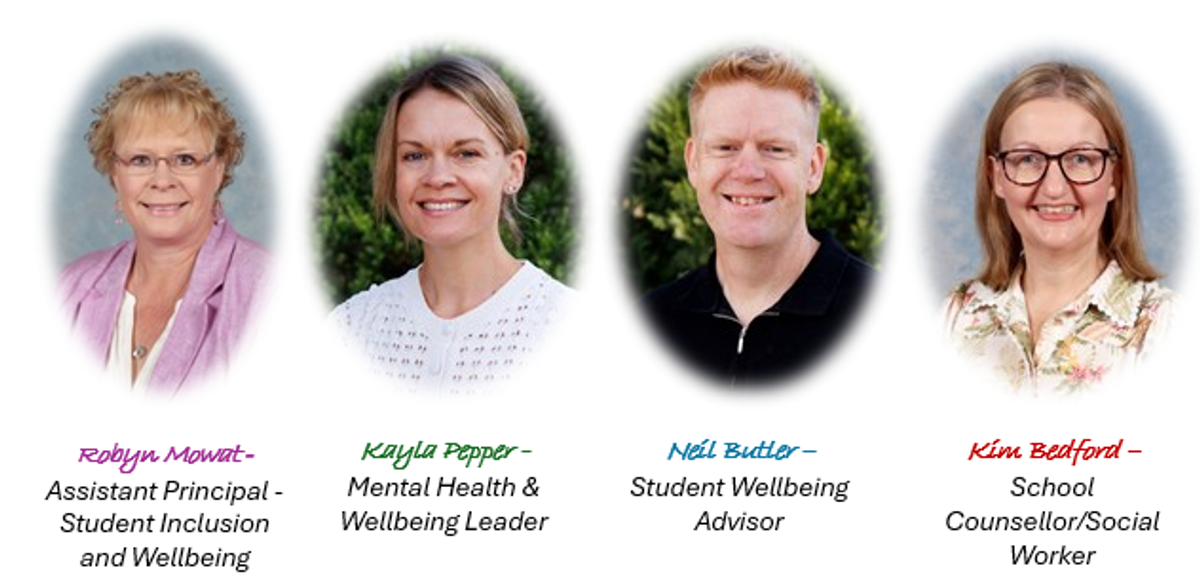Student Wellbeing & Mental Health

Lysterfield Primary Student Wellbeing and Mental Health Team
Big-Event Jitters: Helping Kids Feel Brave (Even When They’re Nervous)
With production rehearsals, swimming, and winter sports all happening, it’s completely normal for children to feel butterflies. Nerves aren’t a problem to “fix” - they’re a sign the brain and body are gearing up for something important. The goal isn’t zero nerves; it’s learning simple tools to help carry those nerves well.
'Name it to tame it'
Help your child label what they feel: “nervous", "excited,” “jittery,” “worried.” Naming feelings turns them from a swirl into something you can work with. You might say, “Those flutters mean your body is getting ready to perform.”
Make a tiny plan
Kids feel braver when they know the steps. Together, sketch a quick “Before-During-After” plan:
- Before: snack, toilet stop, warm layer in the bag, water bottle filled.
- During: “If I wobble, I pause, breathe, and keep going.”
- After: a calm “landing” (home cuddle, favourite book, quiet play).
Body tools that work fast
- Square breathing: in 4, hold 4, out 4, hold 4 (repeat 3 times).
- Squeeze-release: clench fists for 5 seconds, release (x3).
- Butterfly taps: cross arms and gently tap shoulders L–R for 20 seconds.
Helpful self-talk
Try short, coach-like phrases: “Nerves mean I care,” “One step at a time,” “Pause, breathe, reset.” Model your own: “I felt nervous today too, and breathing helped.”
Set the scene for success
On “big” days, keep mornings predictable: a simple breakfast, a few minutes of movement, and a quick check-in: “What’s on today? Anything you want help with?” Leave a little earlier to avoid rushing (rushing grows nerves). (Obviously, some mornings just don't go to plan though - we can't control everything!)
Aftercare matters
When it’s over, focus on effort and learning: “You kept going when it felt hard - that’s real bravery.” Keep the evening gentle and early; big feelings (even happy ones) use a lot of energy.
If your child’s worry is very intense (e.g., frequent tears, stomach aches, or refusal that lasts beyond the event), please reach out to us - we’re here to help.
Our Pegasus community has many exciting moments ahead. With a few small tools, children can meet them with growing courage and pride.
Kayla Pepper | Mental Health & Wellbeing Leader
Upcoming Workshops / Other Information
Supporting Kids Through Hard Times - Calming the emotional storm & leading them through
A webinar with Dr Leonie White - hosted by Michelle Mitchell
Dr Leonie will be stepping us through ideas to support families whose kids are going through hard times and experiencing big emotions. Drawing on her systemic family therapy approach, Leonie brings deep compassion and practical insight into what really helps. She’ll show us how to shift unhelpful relational patterns, co-regulate through big emotions (without losing ourselves in the process), and hold steady in the middle of the emotional storm.
We’ll cover:
- The unhelpful myth that we control or cause kids’ behaviour, and instead think about the many complex factors that contribute and how to become a resource to our kids
- Insights about relational loops, including how they form, how they keep us stuck, and how to shift them
- One common mistake that most parents make, and lots of helpful tips to get through heated moments
- What co-regulation looks like with tween and teens
- Valuing ourselves as both people and parents
- Finding your “I” position. What you are and aren’t prepared to do in tough moments.
- Including kids and teens in conversations about behaviour and solutions
- Avoiding the invitation to focus only on the problem, and seeing your child as a whole person
Date: 21st August, 2025
Time: 8pm AEST
Cost: $35.00
Anxiety Toolkit for Parents - Card Deck
This evidence-informed 70-card deck, designed by Dr Jodi Richardson, is designed for parents, educators and health professionals who are supporting anxious kids or teens.
These cards help you show up in anxious moments with understanding, calm, and the right kind of support, so your child feels seen, safe, and less alone.
They give you the insight, education and strategies to help your child or teen in the moments they need you most.
With these cards, the next time your child is nervous, anxious or overwhelmed, and that familiar “I don’t know how to help” panic rises, you’ll have something to reach for.
In that moment, you won’t feel helpless. You’ll feel ready.
The cards are grouped into five easy-to-use sets:
Understanding Anxiety – how it works in the brain and body
Signs & Symptoms – thoughts, feelings, behaviours and physical cues to watch for
Management Strategies – in-the-moment calming techniques that work
Ways You Can Help – gentle guidance for parents, carers and educators
How I Can Help – links to extra support, including books and podcast episodes
Use these cards on your own, with your child or student, or alongside a health professional.
Each one is designed to make sense of anxiety, and what to do next.
DISCOUNT CODE: LAUNCH10 for 10% off!
Podcasts of Interest
Well, hello Anxiety - Podcast - Dr. Jodi Richardson
Pop Culture Parenting - Pop Culture Parenting — Guiding Growing Minds
Parental as Anything - Parental As Anything with Maggie Dent and Bec Sparrow - ABC listen
The Imperfects - The Imperfects Podcast

